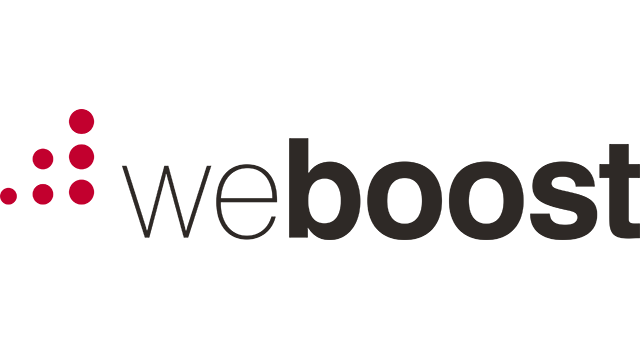Reprinted with permission from the weBoost blog.
According to FEMA, just 37% of small businesses have a disaster preparedness plan in place. FEMA surveyed business owners to learn that among small businesses with less than 50 employees, 60 percent of owners say they don’t need such a plan. Among businesses with 300 or fewer employees, 51 percent don’t see the need to prepare for an emergency.
Still, ask any small business owner who’s been through a crisis, and they’ll tell you that businesses need to be prepared for emergency situations. You never expect the worst to happen – until it does.
Communication is a critical part of crisis mitigation, and today that means reliable cellular connectivity is paramount. The implications in regard to the safety of your staff and customers are significant. Let’s explore the importance of cell signal in a crisis and how a one-time investment could make all the difference.
Understanding crisis communication
Crisis communication refers to the process of sharing information, managing perceptions, and addressing concerns in times of crisis. It’s crucial for organizations to have an effective crisis communication plan in place to ensure that messages are properly conveyed to internal and external stakeholders. Here is a look at the key elements of crisis communication.
- Specific Individuals: Designate capable individuals responsible for communicating with stakeholders during a crisis.
- Transparent Information Sharing: Share timely and accurate information with internal and external stakeholders, ensuring consistency and tailored messaging.
- Engaging Stakeholders: Keep both internal and external stakeholders informed and engaged to address concerns and maintain trust.
- Responding Quickly: Act swiftly and decisively in addressing the crisis, minimizing its negative impact.
- Post-Crisis Evaluation and Communication: Evaluate crisis management strategies, make improvements, and communicate actions taken to prevent future crises.
Why businesses need cellular connectivity in a crisis
There are several situations where your business might need to make emergency calls. Consider the following scenarios:
- Power outage: Power outages cost small businesses an estimated $27 Billion per year in lost revenue and productivity. During a power outage, your VoIP (Voice over Internet Protocol) systems and WiFi calling may become unavailable, making it impossible to communicate with emergency services or employees.
- Natural disasters: In 2022, 421 natural disasters were recorded globally. Disasters such as earthquakes, hurricanes, major storms, or floods can disrupt landline connections. When this happens, cellular connectivity will be essential for reaching emergency services and coordinating with staff.
- Medical emergencies or accidents: In the event of an accident or medical event involving staff, customers, or clients, being able to quickly contact emergency services can save lives.
- Reporting break-ins/robberies: In the United States, about 50,000 businesses are robbed annually. If your business or a nearby establishment experiences a break-in or robbery, having reliable cellular connectivity allows you to report the incident promptly.
- Fire: About 25% of small businesses never reopen after a major fire. Fires are likely to disable landline systems or electricity, making it crucial to have alternative communication channels to get help fast.
- Staying in touch with home: If an emergency occurred at home or a family member was stranded with car trouble, you’d want them to be able to get in touch with you while you’re at work. If your cell signal is unreliable, this could be a problem.
Emergency calls on cellular phones
According to the National Emergency Number Foundation, over 240 million calls are placed to 911 dispatch services annually in the U.S. In many areas, 80 percent or more of these calls come from cellular devices.
In years past, first responders would have trouble pinpointing your location if you called from a cell phone. But this has changed.
Recent technological advancements allow emergency services to find you more easily using GPS and tower triangulation. (Be sure to provide dispatch with as much information as possible during emergency calls, though.)
Risks of not having cellular connectivity in a crisis
You’d never consider having reliable connectivity at home, because aside from everyday living, you’d worry about how to get help in an emergency.
In your business, the risk is the same – dead zones and weak cellular signals can make or break you in a crisis. Consider these complications:
- Delayed emergency response: Without reliable cellular connectivity, contacting emergency services can be delayed, potentially increasing the time it takes for help to arrive.
- Communication breakdown: Inability to communicate with staff, both on and offsite, can hinder the coordination of response efforts and put employees and customers at risk.
- Financial loss and temporary closure: If your business cannot operate during a crisis due to a lack of cellular connectivity, financial losses may occur, and you may have to close temporarily.
- Inability to process payments: Without reliable connectivity, you can’t process payments for goods and services people need in a crisis.
- Impaired safety: Spotty cellular connectivity can jeopardize the safety of everyone on the premises, leaving them vulnerable in critical situations and undermining your peace of mind.
- Liability: If poor connectivity keeps a visitor from getting help when needed, it could become a liability issue if they take legal action against you for not providing cellular coverage.
How reliable cellular connectivity benefits crisis communication in business:
Prompt emergency response
Having reliable cellular connectivity ensures you, your employees, and your customers can quickly reach emergency services such as police, fire department, or medical assistance. This enables a faster response time, potentially saving lives and minimizing the impact of the crisis.
This creates a safer environment and increases confidence in your business’s ability to handle emergencies.
Seamless communication and coordination
Reliable cellular connectivity allows you to communicate and coordinate with your staff, both on-site and off-site, during a crisis. This facilitates real-time updates and emergency mitigation procedures, so you can respond efficiently.
Business continuity
With reliable cellular connectivity during a crisis, your business may be able to continue operations without major disruption. You can communicate with customers, partners, and suppliers, minimizing the impact on revenue and overall business continuity.
Customer service and reputation management
During a crisis, reliable connectivity means you can continue to provide customer service and address customer concerns promptly. This helps you maintain positive relationships, protect your business’s reputation, and foster customer loyalty.
Remote access and mobile capabilities
If your mobile connection is strong, even in a crisis you can leverage mobile devices, remote access tools, and cloud-based applications. This keeps employees working remotely, accessing critical business systems even if your physical location is affected by the crisis.
Adaptability to evolving situations
During a crisis, conditions can change rapidly. Reliable cellular connectivity helps you stay informed with the latest notifications, evacuation procedures, and other updates so you can make informed decisions on the fly.
Minimized financial losses
By remaining operational and maintaining communication channels, you can minimize the financial losses associated with business interruption, temporary closures, and service disruptions. This contributes to the overall resilience and long-term sustainability of your business.
Aside from crisis communication, improved cellular connectivity benefits your business every single day, enhancing customer experience, staff satisfaction, and facilitating tasks such as sales calls and mobile checkout.
How to solve weak cellular connectivity in your business
To address weak cellular connectivity in your business, several solutions are available. Let’s explore some options:
- Satellite phones: While satellite phones can provide reliable connectivity, they are often not feasible for your business due to their high cost and specialized requirements.
- VoIP: This internet-based phone system has become popular, but can be very expensive with subscription fees, maintenance, and equipment costs, especially when you need to scale up.
- Landlines: Although a landline connection is an alternative, it is not immune to outages during emergencies and comes with monthly costs.
- Cell signal boosters: Cell signal boosters from weBoost provide an effective, permanent solution for weak cell signals in your business. Our business boosters are designed specifically for businesses. They are also carrier agnostic, meaning they work with all carriers and devices simultaneously, ensuring reliable connectivity for everyone. Cell signal boosters have no subscription fees, so they’re a one-time investment.
Prioritize crisis communication with reliable cell signal
In today’s world, your business must prioritize crisis communication by ensuring reliable cellular connectivity. The risks of inadequate connectivity during crisis situations are substantial, affecting the safety of employees, customers, and overall business function.
By investing in quality weBoost cellular signal boosters from Solid Signal, your business can improve crisis communication, save money, and provide a safer environment for everyone. Don’t wait until an emergency strikes. Call us at 888-233-7563 or fill out the form below to start improving cellular connectivity in your business.





